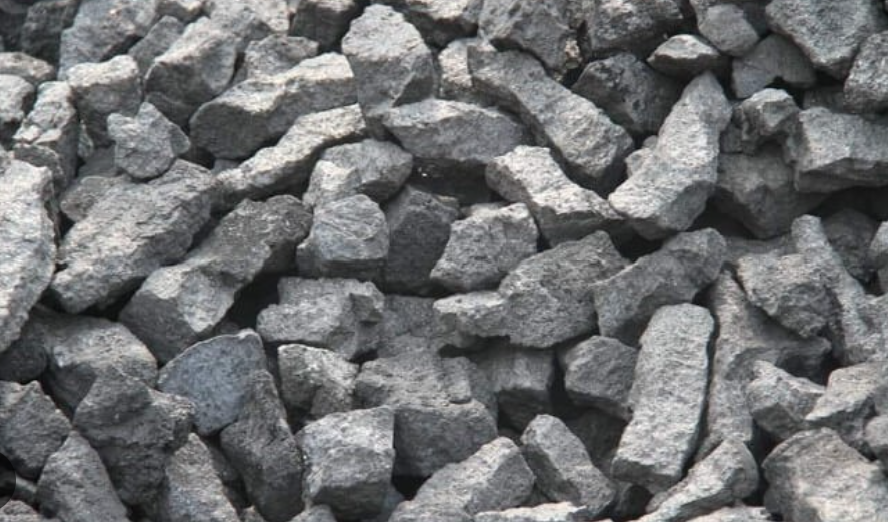Metallurgical Coke (Met Coke) and Its Crucial Role in Diverse Industrial Applications
- Richa Environmental
- Jul 20, 2023
- 3 min read
Feel free to contact us for best rates of Met Coke and Lumps
Met Coke - Fueling Industries Worldwide
Metallurgical Coke, commonly known as Met coke, stands as a fundamental carbonaceous material with significant importance in a wide array of industrial applications. In this comprehensive blog post, we will explore the composition, manufacturing process, and unique properties that make Met coke ideal for industrial usage, distinguishing it from other forms of coke.

Composition and Manufacturing Process:
Met coke is derived from high-quality bituminous coal through a meticulous process known as carbonization or coking. During this process, coal is heated in the absence of air at high temperatures (ranging from 900°C to 1200°C) in coke ovens. This drives off volatile components, leaving behind a solid, carbon-rich residue - Met coke. The quality of Met coke heavily depends on the type of coal used and the coking conditions applied.
Properties and Distinctions:
The resulting Met coke exhibits several key properties that render it highly suitable for industrial purposes. It possesses excellent mechanical strength, making it resistant to crushing and degradation during handling and transportation. Additionally, it has low reactivity, ensuring minimal consumption in various applications. Its high carbon content, typically above 90%, grants it superior thermal conductivity and stability under extreme temperatures, making it an ideal material for various industrial processes.
Primary Industrial Applications - Steel Industry: Met coke plays an indispensable role in the steel industry, where it is used in the blast furnace process to produce iron and steel. During this process, Met coke serves as both a reducing agent and a source of energy. As it reacts with iron ore, it reduces the iron oxides, liberating molten iron and producing carbon dioxide gas. This reduction process is vital to obtain crude iron, which later undergoes further refining to produce steel. The quality and properties of Met coke significantly influence the efficiency, productivity, and overall cost of steel production.
Beyond Steel - Non-Ferrous Metals and Smelting Processes: Met coke finds applications beyond the steel sector in the production of non-ferrous metals like aluminum, titanium, and silicon. In smelting processes, such as aluminum smelting, Met coke serves as a reducing agent to convert metal oxides into their elemental forms. This ensures the extraction of pure metals from their ores, facilitating the manufacturing of various non-ferrous metal products. Its exceptional reducing capabilities and stability in high-temperature environments make Met coke a preferred choice in these critical processes.
Foundry Industry and Casting Processes:
In the foundry industry, Met coke is extensively used in casting processes. Its uniform heat distribution ensures consistent melting of metals, promoting the production of high-quality castings. Moreover, Met coke's ability to reduce impurities in the molten metal enhances casting precision and reduces the likelihood of defects. Foundries rely on Met coke for its reliability and the excellent surface finish it imparts to the final products.
Chemical Industry - A Versatile Reducing Agent: Met coke plays a crucial role in the chemical industry as a potent reducing agent. It finds application in various chemical reactions, especially in the synthesis of chemicals like calcium carbide and calcium cyanamide. Its capacity to donate electrons during chemical transformations is pivotal in these reactions, leading to the production of essential organic compounds.
Real-World Success Stories:
Several industries have reaped the benefits of incorporating Met coke into their processes. For instance, a steel manufacturing plant in XYZ saw a considerable increase in steel output while reducing carbon emissions by 20% after optimizing their blast furnace operations with high-quality Met coke. Similarly, a leading aluminum smelting company experienced enhanced energy efficiency and reduced metal wastage by employing Met coke in their production line.
Challenges and Environmental Considerations:
Despite its numerous advantages, the use of Met coke is not without challenges. The manufacturing process generates greenhouse gas emissions, contributing to environmental concerns. As a result, industries are exploring alternative materials and technologies to mitigate these impacts, such as using biomass-derived coke or implementing carbon capture and storage techniques.
In Conclusion: Metallurgical Coke, or Met coke, stands as an indispensable component in various industrial applications. Its unique properties, along with its roles in steelmaking, non-ferrous metal production, foundries, and the chemical industry, highlight its significance in our industrial ecosystem. While challenges persist, Met coke remains a critical material that fosters a sustainable and efficient industrial landscape. Its versatility and impact make it an essential pillar in driving progress and innovation across diverse industries, shaping a better future for the world.
PAN India and worldwide supply. Cheap and best Met coke.


Kommentare